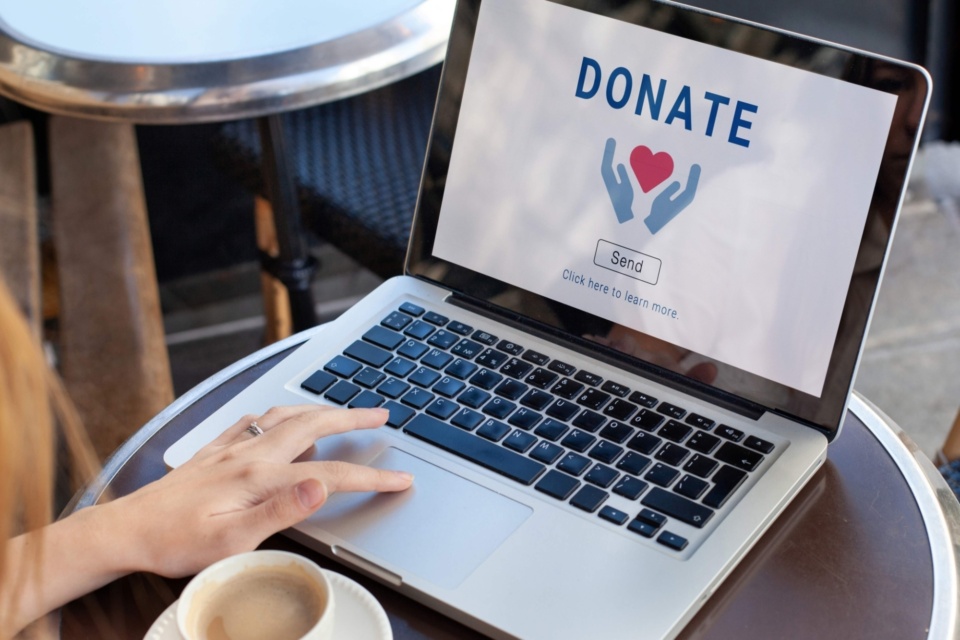
What not-for-profit leaders need to know in 2026
Posted on 12 Feb 2026
Our special NFP trends report distils the views of more than two dozen experts.
Posted on 12 Nov 2024
By Matthew Schulz, journalist, SmartyGrants

An Australian investment firm with a strong philanthropic focus is seeking new not-for-profit partners to tackle child abuse, neglect and maltreatment, with an estimated $5 million in annual grants to be made available.
Dr Philip Lowe, former governor of the Reserve Bank of Australia and now chair of Future Generation Australia (FGX), said there were compelling reasons to act.
“Severe childhood trauma has lifelong and profound impacts. Australians who experience childhood maltreatment and abuse are far more likely to face physical and mental health problems; social, behavioural and educational issues; and to have high health service utilisation. Not only is this devastating for the individuals involved, but it is costing the Australian economy tens of billions of dollars each year,” Dr Lowe said.

“Childhood is the foundation for life and really affects a person’s future trajectory. At Future Generation, we believe that every Australian child deserves the opportunity that a safe and positive childhood offers – and I know our shareholders do too.”
For over a decade, Future Generation’s philanthropic model has granted a 1% share of its $1 billion asset base each year to charities. The firm is expected to have distributed $100 million in grants by 2030.
This week, Future Generation invited expressions of interest from not-for-profits addressing child maltreatment. The deadline for applications for funding is December 9.
While Future Generation’s global and Australian investment arms primarily aim to make a profit, a significant secondary goal is to give, with a focus on supporting children and youth at risk. Currently two dozen organisations are listed as Future Generation’s “social impact partners”.
Until now, Future Generation’s Australian investment arm has provided help to a mix of foundations, funds and organisations focused on youth and children.
Since 2014, it has provided $43 million for organisations such as the Raise Foundation, the Australian Children’s Music Foundation and Giant Steps. In 2023, Future Generation Australia gave $5.2 million to its social impact partners.
But the beneficiary mix is set to change, a review of Future Generation Australia’s social impact goals having led the organisation to decide to divert more funds to tackle severe childhood trauma.

"Despite compelling evidence about the scale of adverse childhood experiences and their lifelong impacts, the response by governments remains piecemeal and reactive."
Another recipient of Future Generation Australia's youth-focused help has been the Raise Foundation, which provides youth mentoring programs aimed at early intervention.
Future Generation’s social impact strategy aims to fund areas with a high potential for social good that are overlooked or underfunded by other donors, particularly governments.
The call for public expressions of interest is a first for Future Generation Australia and was influenced by last year’s landmark Australian Child Maltreatment Study (ACMS).
The ACMS study, which surveyed 8,500 Australians, found that more than a quarter of young people aged 16–24 had experienced between three and five types of abuse during childhood.
Supporting findings from the Australian Institute of Family Studies showed that 72% of Australian children had been exposed to at least one adverse childhood experience by age 11.
Future Generation CEO Caroline Gurney said not enough was being done to address the problem.
“Despite compelling evidence about the scale of adverse childhood experiences and their lifelong impacts, the response by governments remains piecemeal and reactive. At Future Generation, we are determined to change that – with the help of our army of mum-and-dad shareholders.”
Future Generation’s social impact director, Emily Fuller, said the firm’s funding plan would “lean into the more emergent field of positive childhood experiences”, and that “healthy relationships and connection” had been shown to help children overcome trauma.
“We will focus on children aged 0 to 14, and their parents, because this age bracket captures key development phases. Within that, we are looking particularly for partners that work with children aged 8–14 because they have traditionally received less attention and funding than the 0 to 3 or youth/adolescent stages. We believe that this is the area where Future Generation Australia can make the most meaningful and useful contribution.”
The fund said it would target a “portfolio” of small to mid-sized not-for-profits with proven track records and scope to scale their impact, as part of the expression of interest process.
The funding round is expected to create opportunities for a mix of national and community-based organisations, including Aboriginal community organisations.
Future Generation is expected to track the progress of each partner, as well as examine their collective impact, with the aim of demonstrating the value of the investment to others, especially governments.
The fund’s global arm (Future Generation Global, or FGG) recently reported on the social impact of its grants, which helped more than 5.3 million young participants through $4.6 million in funding in 2023. It also recently conducted a strategic review of funding, prompting the firm to give less money to large charities and spend more on supporting smaller, higher-impact charities. The Future Generation Global fund now stands as one of the biggest private funders of youth mental health in the country.
Lodge an expression of interest for funding with Future Generation Australia

Posted on 12 Feb 2026
Our special NFP trends report distils the views of more than two dozen experts.

Posted on 30 Jul 2025
A major study of Australian charitable giving has found that 4.248 million Australian taxpayers…

Posted on 22 Jul 2025
Charities are facing mounting challenges in attracting donations as household expenses continue to…

Posted on 16 Jul 2025
As debate continues over what percentage of its money a Private Ancillary Fund (PAF) should be…

Posted on 08 Jul 2025
Not-for-profits yet to lodge their overdue self-review return will have to prove they have taken…

Posted on 25 Jun 2025
Revenue for Australia’s charity and not-for-profit sector has reached record highs, and total…

Posted on 23 Jun 2025
Progress towards uniform national fundraising laws is welcome, but it needs to happen much faster,…

Posted on 17 Jun 2025
Donations to community organisations ahead of the end of the financial year have increased for the…

Posted on 17 Jun 2025
Philanthropy Australia has urged the federal government not to “cherry pick” the implementation of…

Posted on 12 Jun 2025
Not-for-profits and charities can now access free one-on-one tech advice to help them identify how…

Posted on 09 Jun 2025
There are more than 60,000 charities in Australia, but they are far from equal, writes Margaret…

Posted on 05 May 2025
Theatre Network Australia co-founder Nicole Beyer’s passion for giving and the arts can be traced…